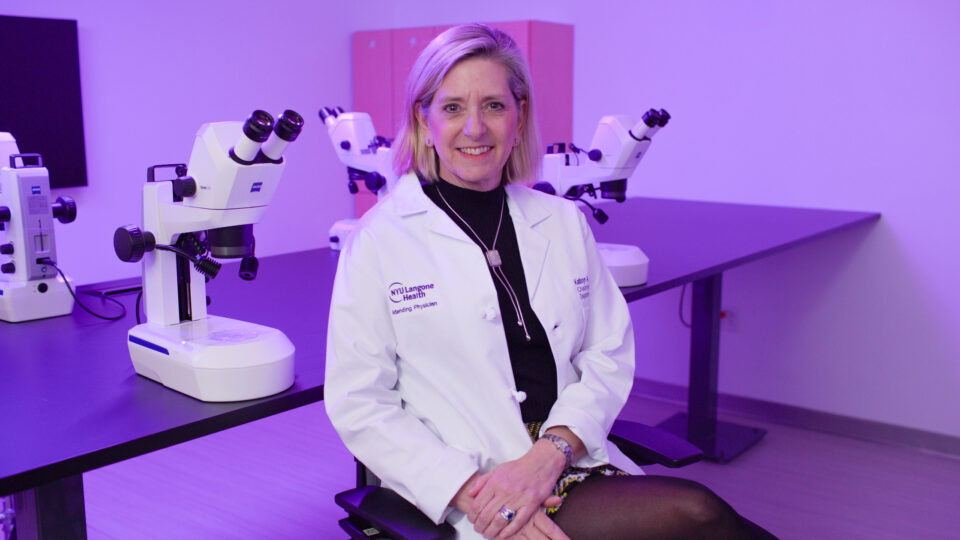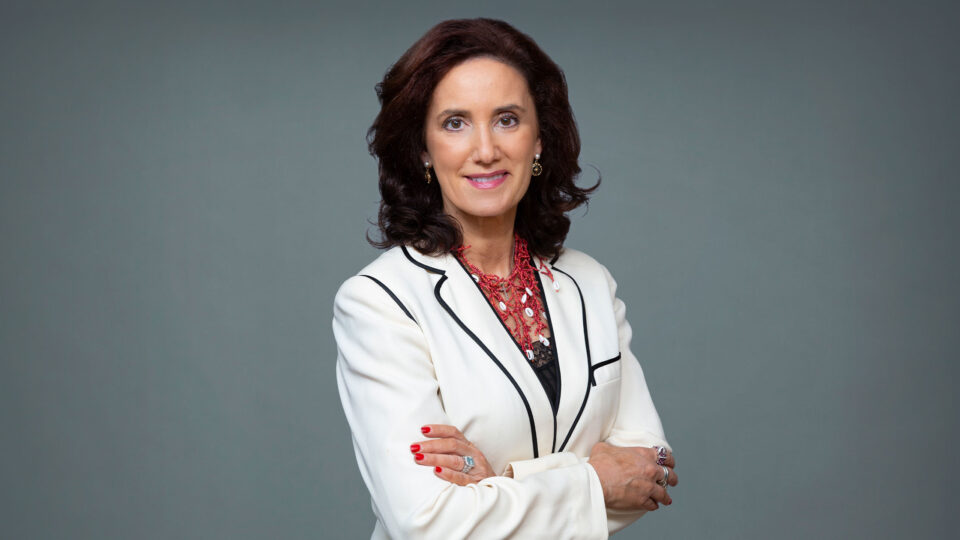Despite its status as a leading cause of irreversible blindness, uveitis is still an uncommon focus of research. The autoimmune condition is often treatable if caught in time, but choosing the best medication for each patient is still based on trial and error.
Since his arrival in October 2023 as director of the Division of Uveitis Services in the Department of Ophthalmology at NYU Langone Health, leading specialist C. Michael Samson, MD, MBA, has launched an ambitious plan to rethink how uveitis is classified. Doing so, he says, will help identify underlying disease pathways and improve the selection of vision-saving biologics. Here, Dr. Samson discusses the state of the field and his vision for the future.
Reliance on Trial and Error
Physician Focus: Dr. Samson, what’s the current state of clinical care for uveitis?
Dr. Samson: At present, uveitis remains the rarest subspecialty in ophthalmology, but I think significant strides have been made in clinical care.
You can think of a uveitis specialist as the rheumatologist of eye doctors. To treat autoimmune conditions, rheumatologists use, in many cases, systemic immunosuppressives or immunomodulators. These medications can be vision-saving for uveitis patients, and yet most eye doctors have very little experience in using them.
“We need a new way of approaching patients with inflammatory eye disease.”
C. Michael Samson, MD, MBA
While the medications are very effective in treating patients and preventing blindness, the clinical approach of trial and error really hasn’t changed over the last 25 years. Patients often sense this uncertainty, asking “Well, which medicine do we try next?” We need a new way of approaching inflammatory eye disease, and that personal mission is what brought me to NYU Langone.
Improving Disease Classification
Physician Focus: What’s the new paradigm that you’re pursuing here?
Dr. Samson: There’s been a lot of research in animal models of uveitis, to the point where researchers have mapped out the entire pathophysiological mechanism and used knockout models or particular therapies to cure the uveitis in the animals. But when we use biologics targeting those same molecules in patients with uveitis, it often doesn’t yield such a great response, meaning that selecting the appropriate treatment for each patient is still a guessing game. For example, interleukin-1 (IL-1) is critical in animal models of uveitis, but biologics that target IL-1 don’t produce significant clinical effects in most cases of uveitis in humans.
My idea is that animal models don’t accurately reflect what happens in humans. Instead of relying on animal models, we can start analyzing and studying the immunopathological mechanism of uveitis in human patients, with the ultimate goal being to understand the disease process. Also, uveitis is typically characterized by whether it’s associated with another autoimmune condition, like lupus or rheumatoid arthritis. Instead, why don’t we categorize uveitis based on the individual’s immune system activity? This approach would provide a more accurate way to categorize the condition.
I have a large and diverse cohort of patients with uveitis, along with data on biomarkers that illustrate the various presentations of uveitis in the eye. For example, uveitis in a patient with sarcoidosis can present in five different ways. In many cases, I believe that presentation can reveal a difference in immune pathology. Now that I’m here, I have a great team and the resources to pursue my research idea.
Physician Focus: How might this rethinking of disease classification help patients?
Dr. Samson: Drug companies continue coming up with biologics that target immune molecules. Ten years ago, I had maybe 7 choices of medications; now I have over 20. However, it hasn’t gotten any easier to select the appropriate biologic for a patient because we have no standardized methodology. Uveitis is a broad umbrella category of at least 30 different diseases, each with unique immunopathological mechanisms that have not yet been elucidated. If we don’t figure out the different immune pathways in each of these disorders, treatment will continue to rely on trial and error.
“If we don’t figure out the different immune pathways in each of these disorders, treatment will continue to rely on trial and error.”
Wouldn’t it be better to apply precision medicine to uveitis, and be able to identify each patient’s specific immune pathway and match it with the most appropriate medication? Once we start categorizing uveitis immunologically, we can conduct retrospective analyses for each disorder to identify which patients responded well to which treatments. We can build immunological signatures from blood samples and use those signatures to select the most effective drug for each individual. That’ll be a game changer.
An Optimistic Eye Toward the Future
Physician Focus: Looking ahead, what are you most encouraged by in the field?
Dr. Samson: Several things give me optimism. There’s now a lot of interest in uveitis outside of our very small research community. Uveitis, which is often associated with other autoimmune conditions, has “orphan disease” status from the FDA. So for companies, it presents a pathway where you can do a smaller and less expensive clinical trial and find information about your drug without having to do a gigantic rheumatoid arthritis or psoriatic arthritis trial. In fact, given that we’re one of the few uveitis centers in the nation, NYU Langone has already been approached by two companies wanting to run their clinical trials for uveitis here.
Secondly, I believe that there’s a modestly higher number of immunologists studying uveitis, based on research meetings I’ve attended and reading what manuscripts are being published. With more investigators with diverse expertise studying the condition, we’ll gain greater insight into the disease and further improve treatments.
The last thing is that I’m pleasantly surprised by how well-informed patients are about the condition and the available treatments. They show great interest in and support for my research and that of other specialists. It serves as strong motivation to move forward and try to make their lives better.






